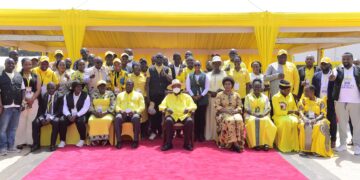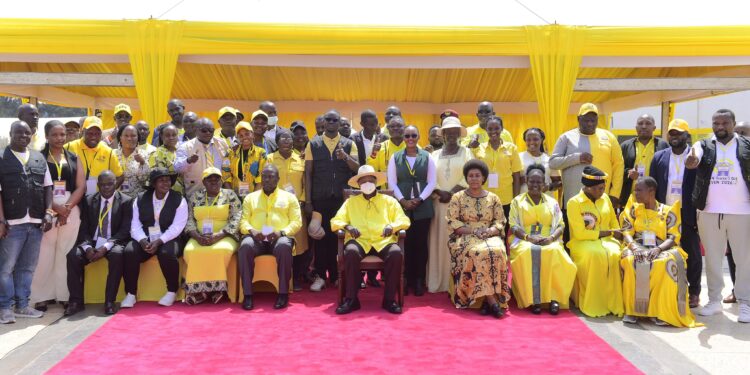President Yoweri Kaguta Museveni, also the National Chairman of the National Resistance Movement (NRM), officially closed the party’s National Delegates Conference at Kololo Independence Grounds with a message anchored on unity, discipline, and integrity.
The three-day gathering, which drew thousands of delegates from across the country, ended with his renewed call for the NRM to resist corruption, embrace justice, and safeguard the trust of its vast membership.
The President, freshly endorsed as the NRM flagbearer for the 2026 general elections, cautioned leaders against abusing the party’s credibility.
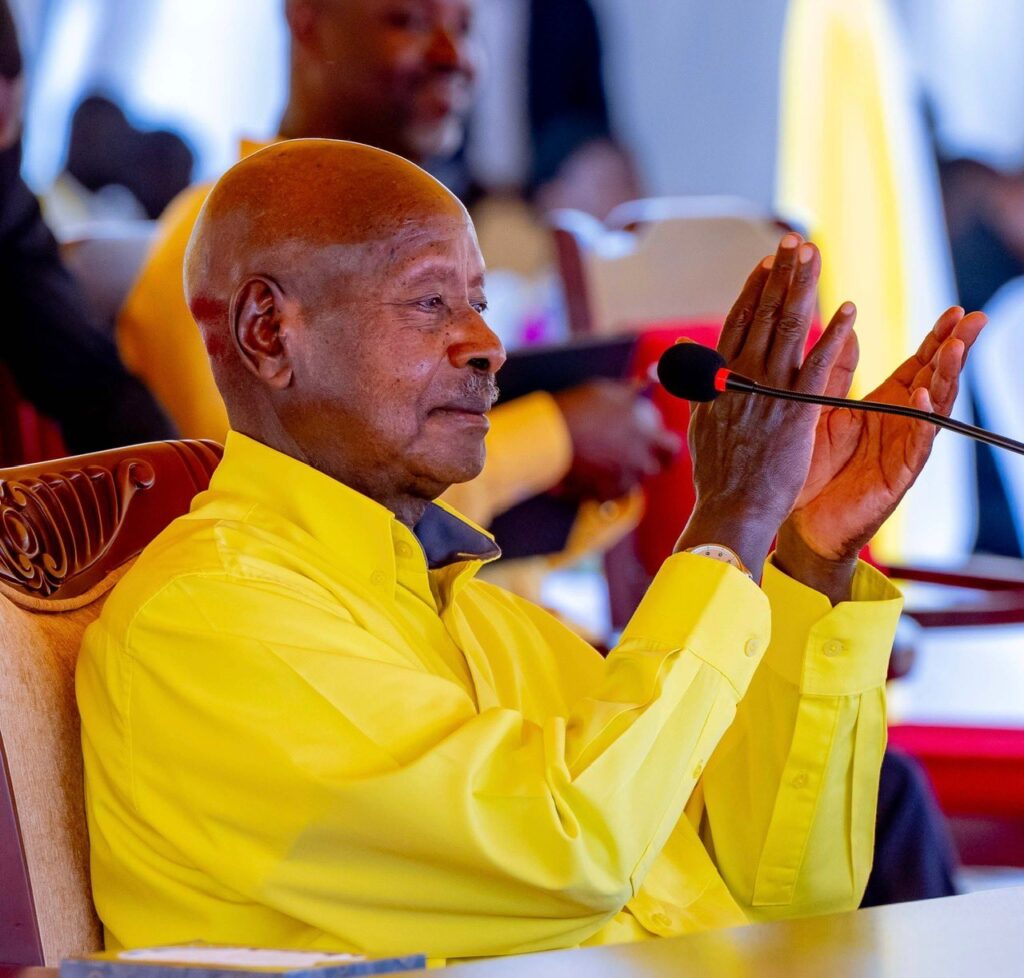
“Reject the corruption that young people are complaining about. Reject it. That is part of the resistance. Don’t annoy our members with injustice and corruption. When you do that, you divide us,” he told delegates, thanking them for completing what he described as a “huge exercise” of internal party elections that began on May 6, 2025, at branch level.
Museveni revealed that NRM’s structures have now registered more than 20 million members, of whom 18.5 million are voters. He called this a “big resource” that must not be squandered.
“These 20 million members want justice, fairness, and the truth. They don’t want lies, favoritism, or corruption,” he warned, adding that carelessness by leaders undermines cohesion.
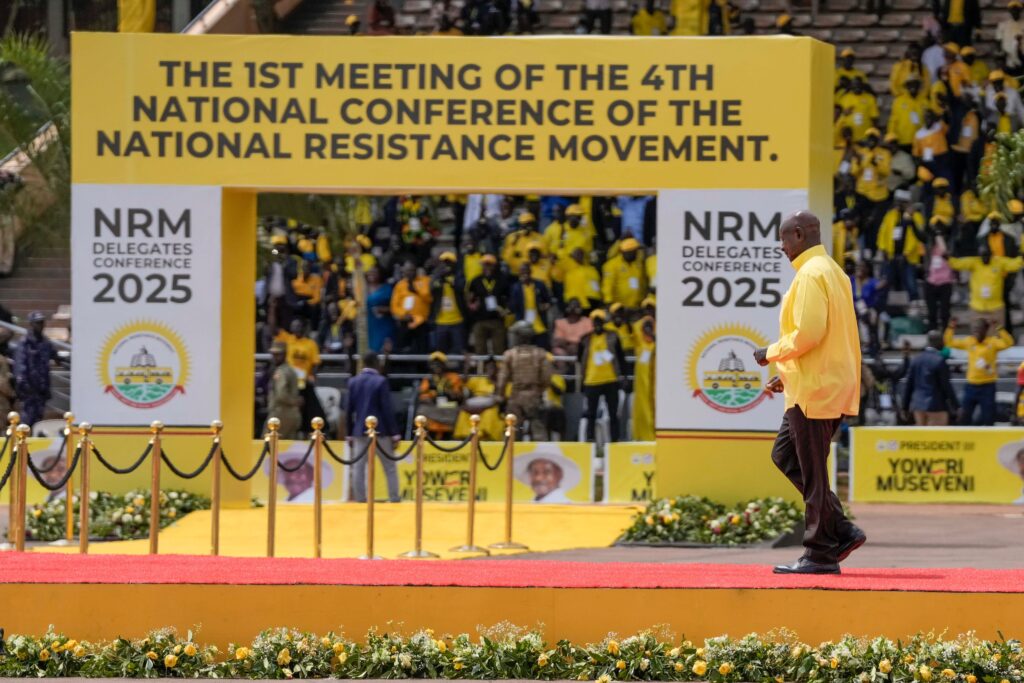
On handling corruption cases, the President emphasized both fairness and firmness. “Somebody is accused of corruption—you don’t condemn them until the facts come out. But all these cases will be investigated, and action will be taken,” he pledged. He stressed that the NRM must remain a movement defined by honesty, not tainted by money politics or impunity.
Addressing the youth, Museveni commended their spirit of resistance against wrong practices. He drew parallels from history, recalling how his group had repeatedly warned the Uganda People’s Congress before resorting to armed struggle in the 1980s. “By resisting what you think is wrong, you are becoming true members of the NRM. But you must do it in the right way,” he advised.
The President reminded delegates that NRM leadership goes beyond politics into daily vigilance. He accused some police officers of failing to confront crime and called on the party’s 2.4 million local leaders to act as watchdogs.
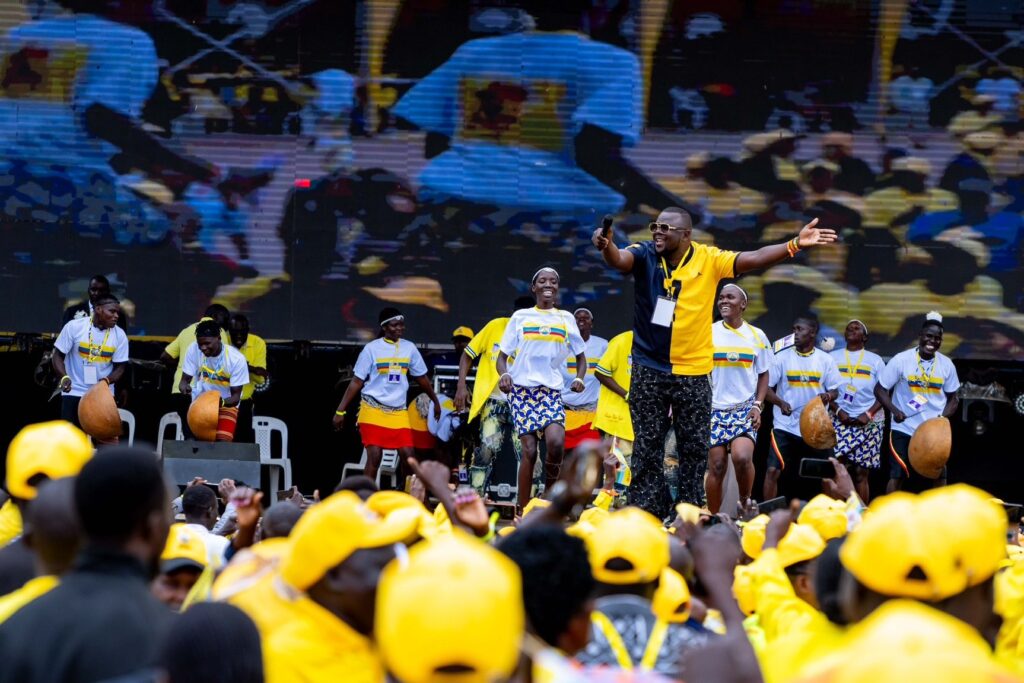
“Don’t allow the police to sit on crime. Something bad happens, they arrest the thief and release him on bond—say no, tell them to stop this,” he commanded, adding that while the army’s role is national defence, local security should be enforced by police with oversight from communities.
Turning to development, Museveni distinguished between collective infrastructure such as roads, schools, and hospitals, and household wealth. “You don’t sleep in the hospital or at school; you stay in your home. What is happening in your home? Every household must have some wealth,” he said.
He once again championed the Parish Development Model (PDM), explaining that each parish is allocated Shs 100 million annually. With repayments, he projected, this would rise to Shs 800 million over five years, ensuring that no household remains trapped in poverty.
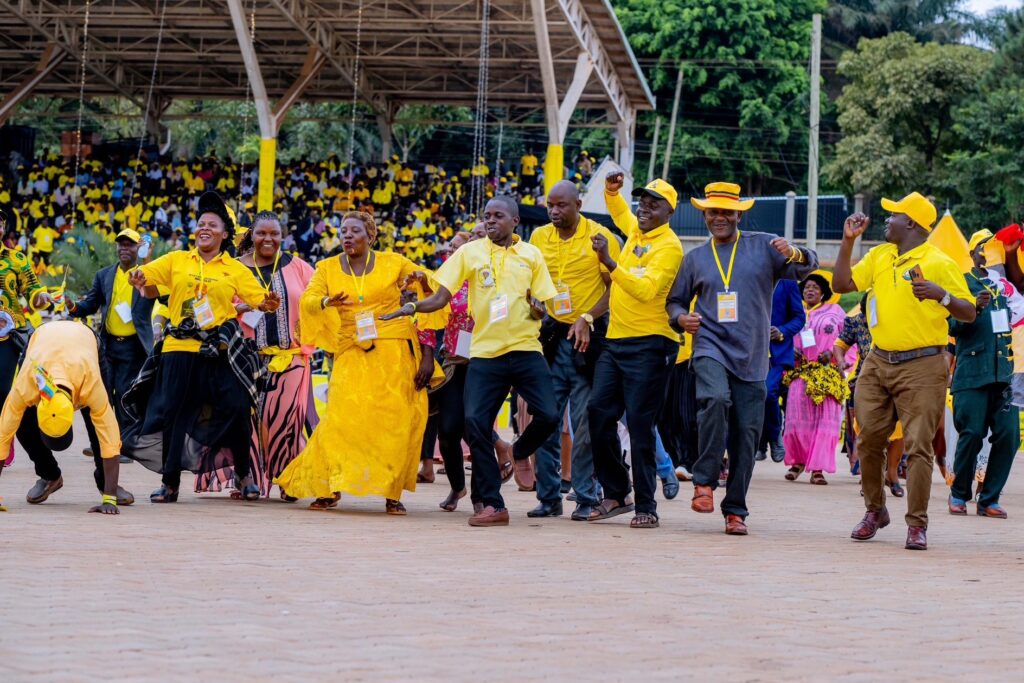
The President also made one of his strongest commitments yet on education, declaring his intention to abolish school fees in government schools. “We must provide free education while empowering homesteads with PDM. After 10 years, if families can pay for private schools, the government can withdraw slowly. But now, this is crucial to stop children from dropping out,” he said.
He coupled this with promises of reliable medical supplies, good feeder roads, and safe water sources, noting that at least two boreholes, piped systems, or protected wells would be provided per village.
At the conference, the NRM Secretary General, Rt. Hon. Richard Todwong, announced results of elections for the Central Executive Committee (CEC) and leaders of the party’s special leagues. Among the highlights, Rt. Hon. Anita Among was elected Second National Vice Chairperson (Female) with 92% of the vote, defeating Hon. Rebecca Kadaga.
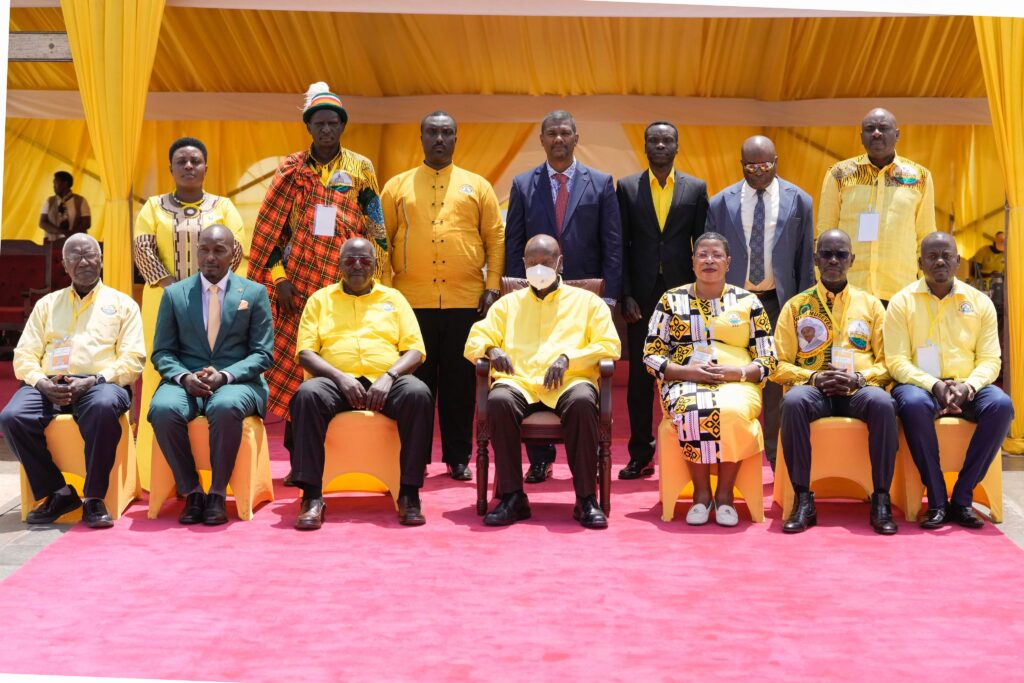
In the regions, Obua Dennis Hamson (Northern), Loki John Baptist (Karamoja), Kyeyune Haruna Kasolo (Central), Salim Saad Uhuru (Kampala), Calvin David Echodu (Eastern), and Asiimwe Jonard (Western) emerged victorious. Museveni congratulated both winners and losers, urging unity and promising to investigate any complaints of electoral malpractice.
The conference also confirmed leaders of the NRM special leagues: Col. (Rtd) Tom Butiime (Historical), Arinaitwe Rwakajara (Workers), Mwanje Shafik (PWDs), Businge Penina Kabingani (Elders), Lt. (Rtd) Mushabe Moses (Veterans), and Adrine Kobusinge (Women’s League).
Solidarity with Parties Across Africa
Beyond domestic politics, the conference was marked by strong messages of solidarity from fraternal parties across Africa. Delegations from South Sudan, Rwanda, Kenya, Burundi, the Sahrawi Republic, and South Africa paid tribute to Museveni’s leadership and reaffirmed Pan-African unity.
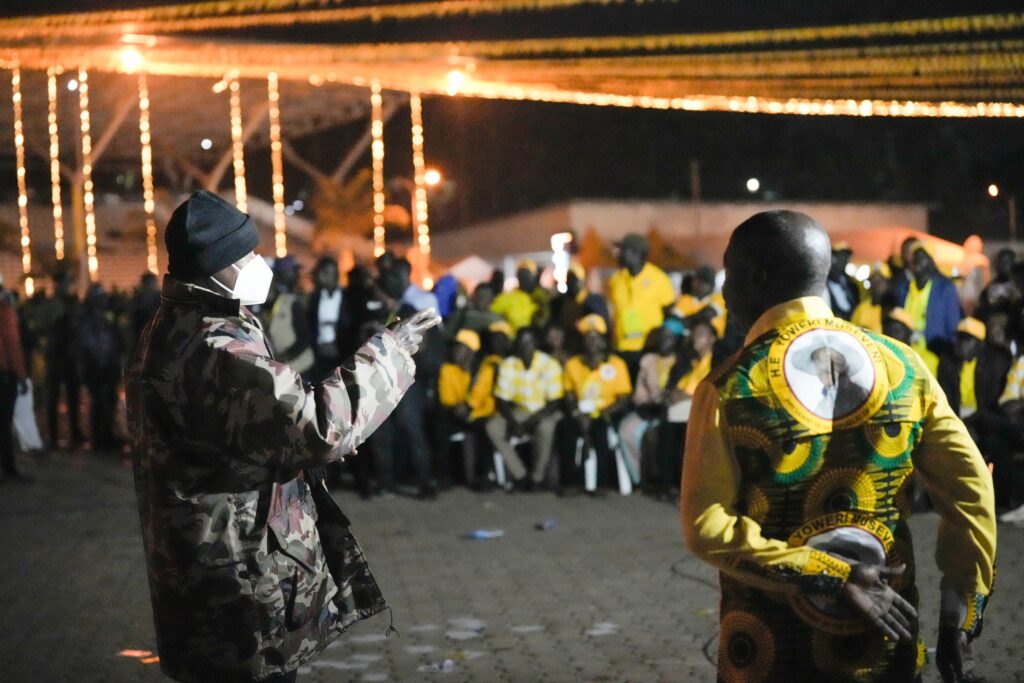
Kenya’s United Democratic Alliance (UDA), represented by Secretary General Hon. Hassan Omar, conveyed greetings from President William Ruto and hailed Uganda under Museveni as a “beacon of political stability, economic resilience, and ideological consistency.”
Rwanda’s RPF, led by Secretary General Amb. Wellars Gasamagera, described the NRM as a “brotherly movement” united with RPF in a shared struggle for dignity and sovereignty.
South Africa’s ANC Deputy Secretary General, Nomvula Mokonyane, praised the NRM for consolidating independence and resisting neocolonialism. “Our gathering affirms the timeless truth that African unity is not a luxury, but a necessity,” she declared.
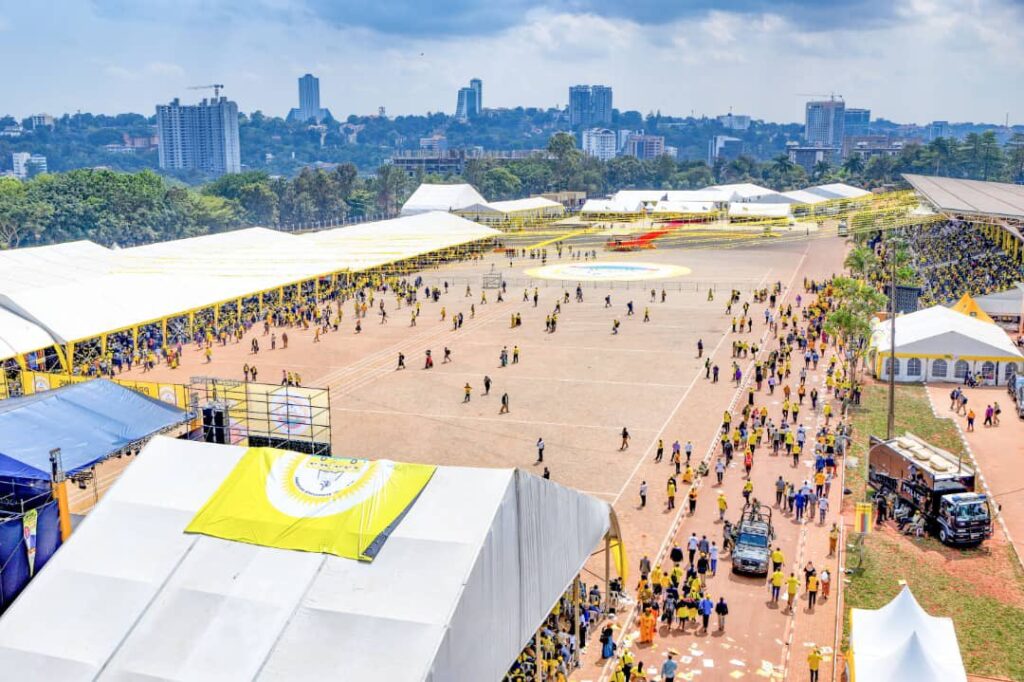
The SPLM of South Sudan, Burundi’s CNDD-FDD, and the Sahrawi Republic also expressed solidarity, saluting NRM’s history and continued relevance as a Pan-African force for integration and peace.
In closing, Museveni urged both delegates and guests to remain committed to the principles of justice, honesty, and discipline. “Nobody should pollute our NRM with bad behavior,” he insisted.
